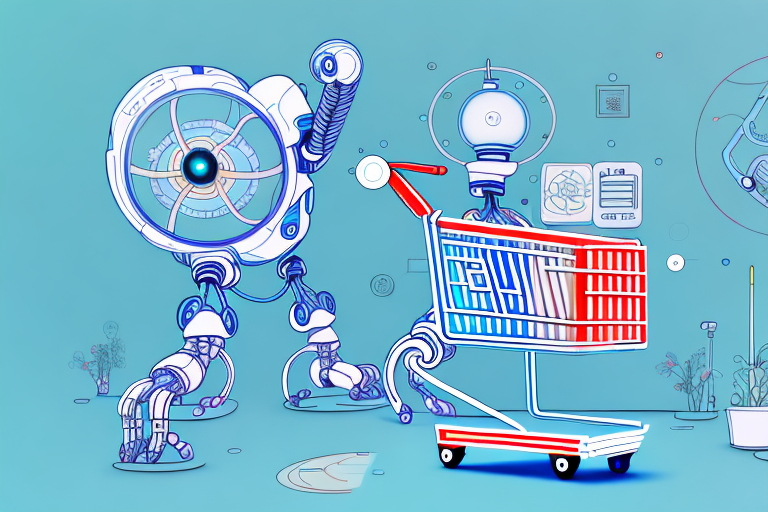Introduction to Machine Learning and AI in E-Commerce
In recent years, the integration of Machine Learning (ML) and Artificial Intelligence (AI) in E-Commerce has revolutionized the industry. These technologies enable businesses to enhance customer experiences, optimize operations, and drive revenue growth. This article explores effective strategies for successfully implementing ML and AI in your E-Commerce business.
Understanding Machine Learning and AI in E-Commerce
What Are Machine Learning and AI?
Machine Learning is a subset of AI that focuses on the development of algorithms that enable computers to learn from and make decisions based on data. AI encompasses a broader range of technologies aimed at simulating human intelligence in machines, including reasoning, learning, and problem-solving.
The Role of ML and AI in E-Commerce
In E-Commerce, ML and AI are utilized to analyze customer behavior, personalize shopping experiences, and streamline operations. These technologies allow businesses to predict trends, manage inventory effectively, and provide tailored product recommendations, thereby enhancing customer satisfaction and loyalty.
Benefits of Machine Learning and AI in E-Commerce
Personalizing the Customer Experience
By analyzing data such as purchase history and browsing behavior, ML and AI can deliver personalized product recommendations and targeted marketing campaigns. According to a Forbes report, personalized experiences can increase sales by up to 30%.
Optimizing Pricing and Inventory Management
AI-driven pricing strategies consider factors like competitor pricing and demand fluctuations, ensuring competitive and profitable pricing. Additionally, ML algorithms can forecast inventory needs, reducing stockouts and overstock situations.
Enhancing Supply Chain Efficiency
AI improves supply chain management by predicting demand, optimizing delivery routes, and managing supplier relationships. This leads to faster delivery times and reduced operational costs.
Fraud Detection and Security
ML algorithms can detect unusual patterns and prevent fraudulent activities by analyzing transaction data in real-time. This not only safeguards the business but also builds customer trust.
Implementing Machine Learning and AI in Your E-Commerce Store
Best Practices
- Identify specific use cases where ML and AI can add value.
- Build cross-functional teams that include data scientists, IT professionals, and business strategists.
- Invest in robust technology infrastructure and scalable platforms.
- Foster a culture of innovation and continuous experimentation.
- Choose the right E-Commerce platform to effectively implement ML and AI technologies.
Top Tools and Platforms
Several tools and platforms facilitate the implementation of ML and AI in E-Commerce, including:
- TensorFlow - An open-source ML framework by Google.
- Amazon Machine Learning - AWS’s suite of ML services.
- Google Cloud Machine Learning - ML tools on Google Cloud.
- Microsoft Azure Machine Learning Studio - A comprehensive ML platform by Microsoft.
Challenges in Implementing Machine Learning and AI
Data Availability and Quality
Effective ML and AI applications require large volumes of high-quality data. Many E-Commerce businesses struggle with collecting, cleaning, and managing data, which can hinder the effectiveness of these technologies.
Expertise and Resource Constraints
Implementing ML and AI requires specialized skills in data science and software engineering. Additionally, smaller businesses may face resource limitations in adopting and maintaining these technologies.
Privacy and Security Concerns
Handling large datasets, especially customer information, raises significant privacy and security challenges. Businesses must ensure compliance with data protection regulations and implement robust security measures to safeguard data.
Case Studies: Successful AI and ML Implementation in E-Commerce
Amazon
Amazon leverages ML and AI to provide personalized product recommendations, optimize logistics, and manage inventory, contributing to its dominance in the E-Commerce space.
Alibaba
Alibaba uses ML for demand forecasting and optimizing pricing strategies, enabling efficient operations and enhanced customer experiences.
Stitch Fix
Stitch Fix utilizes ML algorithms to analyze customer preferences and deliver personalized clothing recommendations, resulting in increased customer satisfaction and revenue.
Sephora
Sephora employs AI-powered chatbots to offer personalized beauty recommendations, improving customer engagement and driving sales.
Future Trends in Machine Learning and AI for E-Commerce
Predictive Analytics
Predictive analytics uses ML and AI to forecast customer behavior and market trends, enabling proactive decision-making and strategic planning.
Innovations and Advancements
Emerging technologies such as natural language processing (NLP) and computer vision are enhancing the capabilities of E-Commerce platforms, offering more intuitive and interactive customer experiences.
Measuring the Success of ML and AI Implementations
Key Performance Metrics
- Customer satisfaction and loyalty.
- Revenue growth and sales performance.
- Operational efficiency and cost savings.
- Fraud detection rates and security breaches.
Continuous Monitoring and Evaluation
Regularly assessing the performance of ML and AI systems ensures they remain effective and aligned with business goals. Adjustments and optimizations based on data-driven insights are essential for sustained success.
Overcoming Common Misconceptions about AI and ML in E-Commerce
- AI will replace human workers: In reality, AI enhances human productivity and creates new job opportunities.
- AI and ML are too complex to implement: With the availability of user-friendly tools and platforms, businesses of all sizes can adopt these technologies.
- AI and ML are only suitable for large businesses: Small and medium-sized enterprises can also benefit significantly from AI and ML applications.
In conclusion, the strategic implementation of Machine Learning and Artificial Intelligence can transform E-Commerce businesses by driving personalization, optimizing operations, and enhancing security. By understanding the benefits, overcoming challenges, and following best practices, E-Commerce businesses can successfully leverage these technologies to achieve long-term success.




















